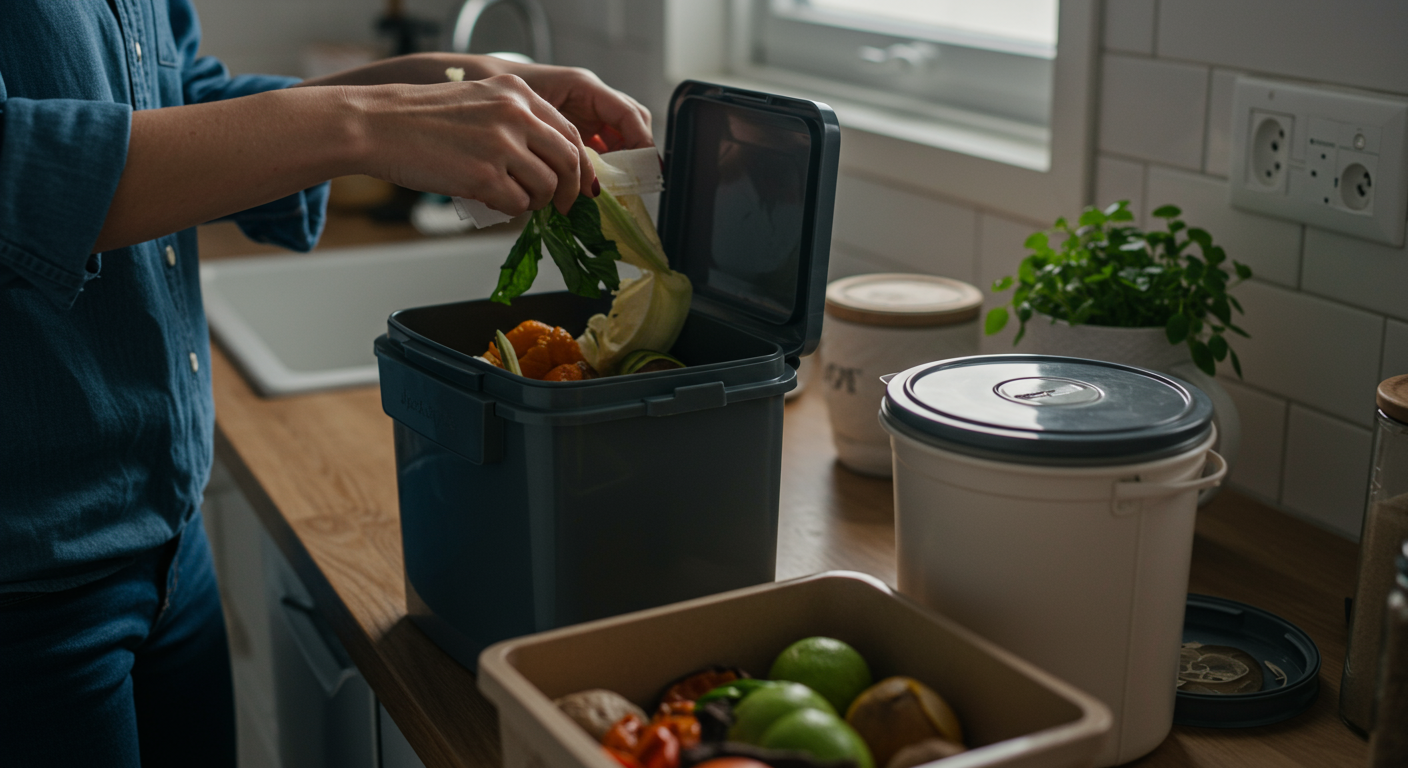Reducing food waste is a critical step toward a more sustainable lifestyle. For eco-conscious consumers, minimizing the amount of food that ends up in the trash is not just a personal choice; it's a commitment to a healthier planet and a more efficient household. This guide offers advanced strategies to help you transform your kitchen into a zero-waste haven, saving you money and reducing your environmental impact.

Deep Dive into Food Waste Reduction for Eco-Conscious Living
Food waste contributes significantly to landfill waste and greenhouse gas emissions. Beyond the environmental concerns, wasted food represents lost resources (water, energy, labor) used in its production and transport. This section will explore advanced strategies to drastically reduce food waste in your home.
Advanced Strategies and Insights
- Master Meal Planning: Go beyond basic meal planning by creating a detailed weekly menu, considering your existing pantry items, and planning meals around ingredients that are about to expire. Use apps or spreadsheets to track what you have and what you need. Consider incorporating a 'use-it-up' meal each week to utilize ingredients before they go bad.
- Optimize Food Storage: Proper food storage is crucial. Utilize clear, airtight containers to store leftovers and fresh produce. Learn the optimal storage conditions for different foods (e.g., keeping herbs in water, storing onions in a cool, dark place). Consider investing in vacuum sealers to extend the life of perishable items.
- Embrace Leftovers and Repurposing: Get creative with leftovers. Turn cooked chicken into chicken salad, use vegetable scraps for stock, and transform stale bread into croutons or breadcrumbs. Research recipes specifically designed to use up ingredients that are nearing their expiration date.
Optimizing Your Sustainable Kitchen
- Composting Expertise: If you're already composting, take it to the next level. Learn about different composting methods (e.g., bokashi composting, worm composting) and how to compost various food scraps, including meat and dairy (depending on your method). Consider a Composting Bin for efficient waste breakdown.
- Smart Shopping and Bulk Buying: Plan your shopping trips meticulously. Create a detailed shopping list based on your meal plan and stick to it. Embrace bulk buying for non-perishable items, using reusable containers like Stasher Bags to store them. This reduces packaging waste and often saves money.
- Track and Measure Your Impact: Use a food waste tracking app or journal to monitor your progress. This helps you identify problem areas, such as frequently wasted foods, and adjust your strategies accordingly. Regularly review your waste reduction efforts to stay motivated and refine your techniques.
Case Study: Thriving on an Advanced Sustainable Path
- The Miller Family: The Millers, committed to zero-waste living, implemented a comprehensive food waste reduction plan. They started by meal planning, utilizing every part of their groceries, and composting all food scraps. They estimate that by reducing food waste, they now save around $50 per month on groceries while significantly decreasing their environmental footprint.
Navigating Complex Environmental Challenges
- Addressing Food Waste in the Supply Chain: While focusing on household efforts is essential, consider the larger picture. Support local farmers markets and businesses committed to reducing food waste. Advocate for policies that promote sustainable food practices.
- The Role of Technology: Explore apps and services that help reduce food waste, such as those that provide alerts about expiring food or connect consumers with excess food from restaurants and stores.
Integrating Advanced Sustainable Practices
- Educate and Inspire: Share your knowledge and strategies with friends, family, and your community. Host workshops or share tips online to inspire others to reduce their food waste.
- Advocate for Change: Contact your local representatives to advocate for policies promoting sustainable food systems and waste reduction initiatives.
Scaling Your Impact: Beyond Personal Choices
- Community Involvement: Partner with local organizations to start community composting programs or food waste reduction initiatives.
- Influence and Lead: Use your knowledge to create a significant impact by advocating and educating others. This includes supporting companies and politicians that actively champion sustainable practices and food waste reduction programs.
Expert-Level Green Living Insights
- The Psychology of Waste: Understand the behavioral aspects of food waste. Often, a lack of awareness, poor planning, and improper storage contribute to waste. By understanding your habits and actively addressing these issues, you can make significant changes.
- Investing in Sustainability: Consider investing in companies that are creating innovative solutions to the food waste problem. Look for companies that are using technology to reduce food waste, turning food waste into energy, or creating sustainable packaging solutions.